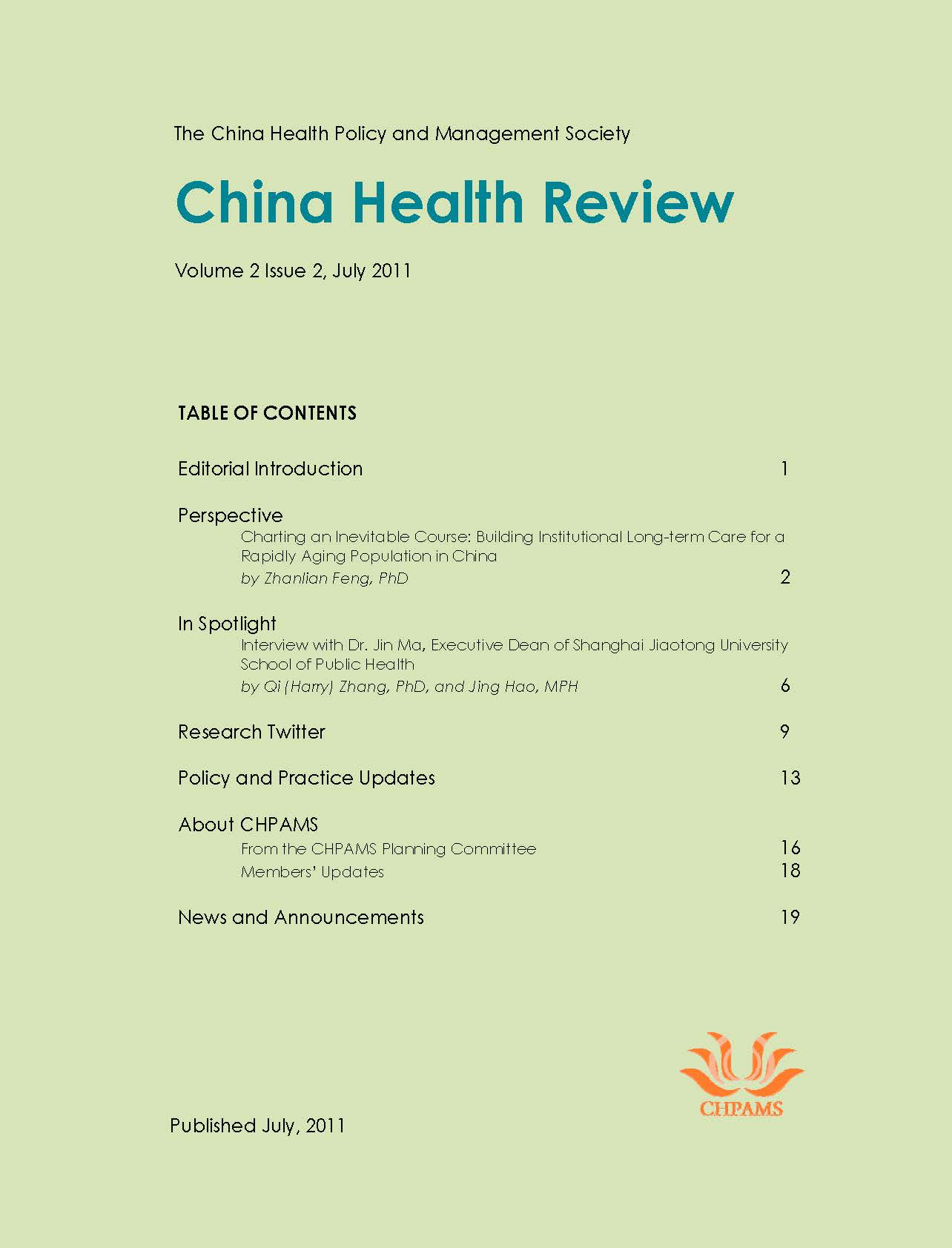Charting an Inevitable Course: Building Institutional Long-term Care for a Rapidly Aging Population in China
Mots-clés :
Long-term care, aging, ChinaRésumé
The last 10-20 years have seen a rapid growth of elder care homes across major Chinese cities, primarily in the private sector. Given ongoing demographic shifts, family changes, and profound socioeconomic transformations in China, the rise of institutional elder care seems all but inevitable to meet the growing demand for long-term care of a rapidly aging population. As this new industry expands rapidly, it is imperative for Chinese policymakers to institute a formalized regulatory structure as soon as possible. To this end, building an information infrastructure is essential to enhance regulatory oversight and quality monitoring in Chinese long-term care facilities.Références
Chow, N. (1999). Diminishing filial piety and the changing role and status of the elders in Hong Kong. Hallym International Journal of Aging, 1(1), 67-77.
Fan, M. (2006, December 22, 2006). In China, Aging in the Care of Strangers: One-Child Policy Changes Tradition. Washington Post, p. A01, from http://www.washingtonpost.com/wp-dyn/content/article/2006/12/21/AR2006122101898.html
Feng, Z., Zhan, H. J., Feng, X., Liu, C., Sun, M., & Mor, V. (2011). An industry in the making: the emergence of institutional elder care in urban china. J Am Geriatr Soc, 59(4), 738-744.
Flaherty, J. H., Liu, M. L., Ding, L., Dong, B., Ding, Q., Li, X., et al. (2007). China: the aging giant. J Am Geriatr Soc, 55(8), 1295-1300.
Guan, X., Zhan, H. J., & Liu, G. (2007). Institutional and individual autonomy: investigating predictors of attitudes toward institutional care in China. Int J Aging Hum Dev, 64(1), 83-107.
Lam, T. P., Chi, I., Piterman, L., Lam, C., & Lauder, I. (1998). Community attitudes toward living arrangements between the elderly and their adult children in Hong Kong. J Cross Cult Gerontol, 13(3), 215-228.
Xinhua Net. (2008, December 4, 2008). Fire Killing 7 in a Wenzhou Senior Apartment Alleged in Operation Illegally (in Chinese). Retrieved May 10, 2011, from http://news.xinhuanet.com/society/2008-12/04/content_10454544.htm
Xuyang, J. (2011, June 8). Age old issues. Global Times, from http://special.globaltimes.cn/2011-06/663228.html
Young, J. (2010, November 15, 2010). China’s One-Child Policy Leads to Elder Care Crisis. The Epoch Times Retrieved May 10, 2011, from http://www.theepochtimes.com/n2/content/view/45988/
Zhan, H., Liu, G., & Guan, X. (2006). Willingness and availability: Explaining new attitudes toward institutional elder care among Chinese elderly parents and their adult children. The Journal of Aging Studies, 20(3), 279-290.
Zhan, H. J. (2004). Willingness and Expectations: Intergenerational Differences in Attitudes Toward Filial Responsibility in China. Marriage & Family Review, 36(1/2), 175-200.
Zhan, H. J., Liu, G., Guan, X., & Bai, H. G. (2006). Recent developments in institutional elder care in China: changing concepts and attitudes. J Aging Soc Policy, 18(2), 85-108.
Zhan, H. J., Liu, G. Y., & Bai, H. G. (2005). Recent Development of Chinese Nursing Homes: A Reconciliation of Traditional Culture. Ageing International, 30(2), 167-187.

